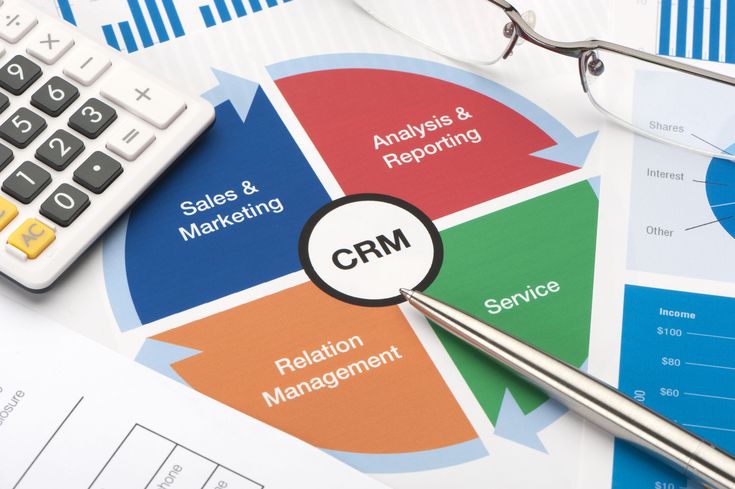
Common CRM Implementation Challenges and How to Overcome Them
Implementing a Customer Relationship Management (CRM) system can significantly enhance a business’s ability to manage customer interactions, streamline processes, and improve overall efficiency. However, the journey to a successful CRM implementation is often fraught with challenges. This article will explore some common CRM implementation challenges and provide strategies to overcome them, ensuring a smooth and effective deployment.
1. Lack of Clear Objectives
Challenge: One of the most common pitfalls in CRM implementation is the lack of clearly defined objectives. Without specific goals, it becomes difficult to measure success and justify the investment.
Solution: Start by defining clear, measurable objectives for your CRM implementation. These could include improving customer service response times, increasing sales efficiency, or enhancing customer satisfaction. Establish key performance indicators (KPIs) to track progress and ensure that everyone involved understands the desired outcomes.
2. Inadequate User Adoption
Challenge: Even the most sophisticated CRM system is ineffective if users do not adopt it. Resistance to change, lack of training, and perceived complexity can all contribute to poor user adoption.
Solution: To overcome this challenge, involve end-users in the selection and implementation process. Provide comprehensive training tailored to different user roles, emphasizing how the CRM system will benefit their daily tasks. Encourage feedback and continuously address any concerns or suggestions to foster a sense of ownership and acceptance among users.
3. Data Migration Issues
Challenge: Migrating existing data into a new CRM system can be a complex and error-prone process. Inconsistent data formats, duplicates, and incomplete records can lead to data quality issues.
Solution: Conduct a thorough data audit before migration to identify and clean up inconsistencies. Develop a detailed data migration plan that includes mapping old data to the new system and performing test migrations to identify potential issues. Utilize data migration tools and work with experienced professionals to ensure a smooth transition.
4. Integration with Existing Systems
Challenge: Integrating the CRM system with existing tools and software, such as email platforms, marketing automation tools, and accounting systems, can be challenging. Poor integration can lead to data silos and inefficiencies.
Solution: Choose a CRM system with robust integration capabilities and open APIs. Work closely with your IT team or CRM vendor to plan and execute integrations. Ensure that data flows seamlessly between systems, providing a unified view of customer information. Regularly test integrations to verify that they function correctly and address any issues promptly.
5. Customization and Scalability
Challenge: Every business has unique processes and requirements. A one-size-fits-all CRM solution may not meet your specific needs, and excessive customization can lead to scalability issues.
Solution: Select a CRM system that offers flexibility and customization options while maintaining scalability. Focus on customizing only the essential features to align with your business processes. Avoid over-customization that could complicate future updates and scalability. Regularly review and adjust customizations as your business evolves.
6. Insufficient Training and Support
Challenge: Lack of adequate training and support can hinder the effective use of the CRM system, leading to frustration and underutilization.
Solution: Invest in comprehensive training programs for all users, including ongoing training to keep up with system updates and new features. Provide easily accessible support resources, such as user manuals, FAQs, and a dedicated helpdesk. Encourage a culture of continuous learning and improvement, where users can share best practices and tips.
7. High Implementation Costs
Challenge: The costs associated with CRM implementation, including software, hardware, training, and customization, can be significant and may exceed initial budgets.
Solution: Develop a detailed budget that accounts for all potential costs, including hidden expenses such as data migration and integration. Consider starting with a phased implementation, focusing on high-priority areas first. Leverage cloud-based CRM solutions that offer flexible pricing models and reduce the need for significant upfront investments in infrastructure.
8. Ensuring Data Security and Compliance
Challenge: Managing customer data comes with stringent security and compliance requirements. Any breach or non-compliance can result in severe consequences.
Solution: Choose a CRM system with robust security features, such as encryption, user access controls, and regular security audits. Ensure that the CRM complies with relevant data protection regulations, such as GDPR or CCPA. Implement best practices for data security, including regular backups, secure user authentication, and ongoing monitoring for potential threats.
Conclusion
CRM implementation can present numerous challenges, but with careful planning and strategic execution, these obstacles can be overcome. By defining clear objectives, fostering user adoption, ensuring data quality, integrating seamlessly with existing systems, balancing customization with scalability, providing comprehensive training and support, managing costs, and prioritizing data security, businesses can successfully implement a CRM system that drives growth and enhances customer relationships. With the right approach, a CRM system can become a powerful tool that transforms how you manage and engage with your customers.